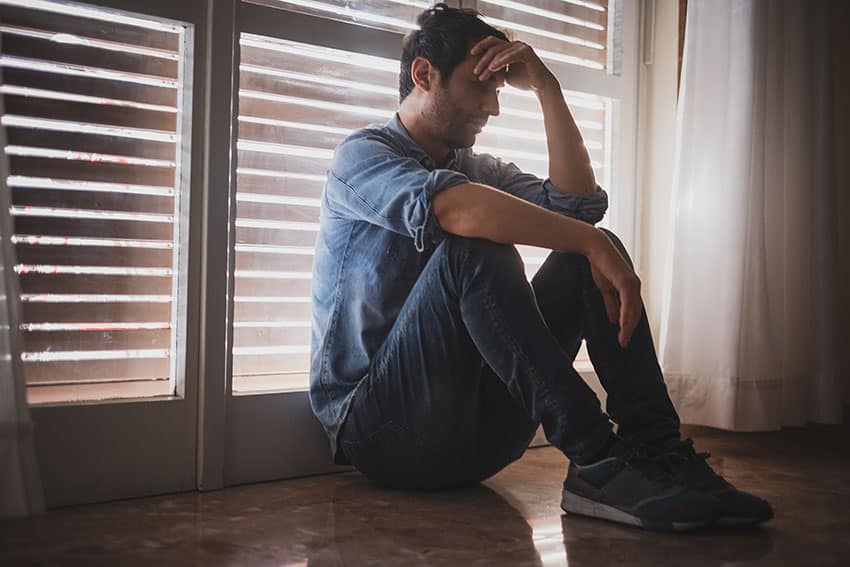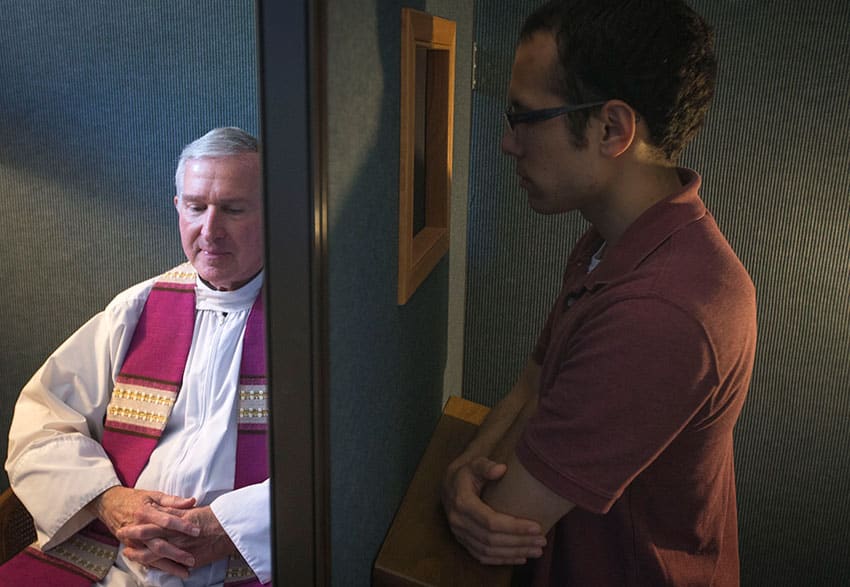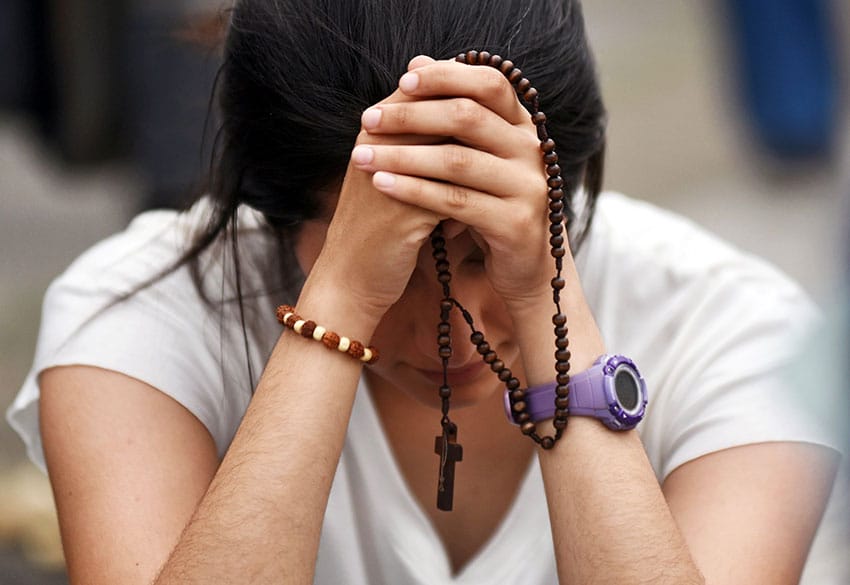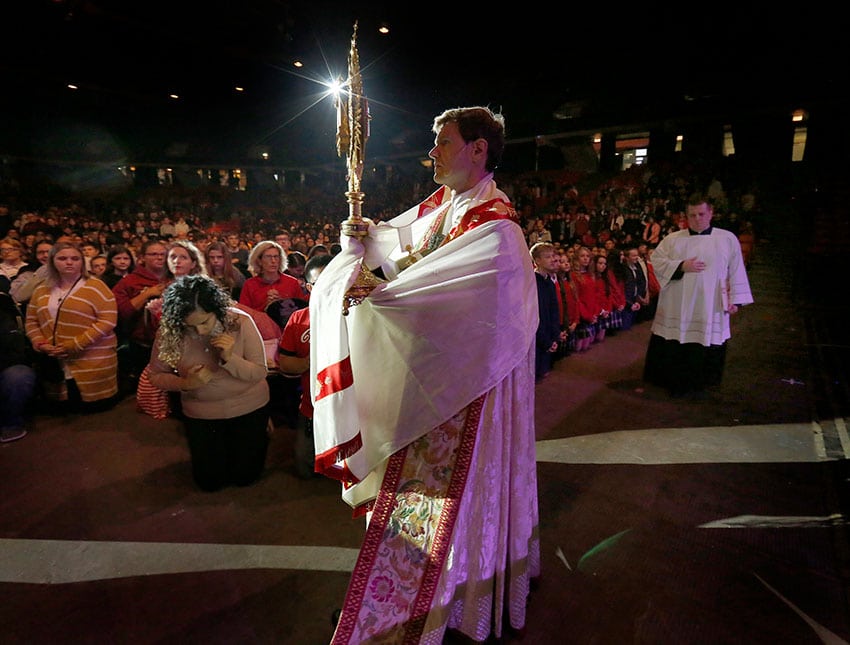Reading Time: 5 minutes

I’m 19-years old and first realised I was sexually attracted to men as I hit puberty.
I was uncomfortable with these feelings because I never felt they were the true me.
I was 11 when I discovered internet pornography. I was immediately drawn to it, always yearning to look at more images of men.
Fleeing reality
I compared myself constantly to the images on screen and never felt good enough in my masculine identity. I now see that these images led me further away from reality and deeper into a world of fantasy.
I was often bullied in lower primary school and called gay by other boys who would also tease me in degrading ways. This led me to isolate in upper primary school, so I never connected significantly with any of my peers. I always felt sidelined and different to other males.
At home, my run-to person was my mother. I shared minimally with her because of the shame connected to what was happening within me and around me.

Father emotionally unavailable
I perceived my dad to be emotionally unavailable, so I never reached out to him as the significant older male and role model in my life.
I had built up a protective wall against other men over time and had taken on a feminine outlook to help me to deal with challenges that would arise. I now see how this was detrimental to my male development.
For a brief time around age 14, I felt attracted to a girl in high school. I tried to get her to be interested in me, but she rejected me. This hurt me deeply. What limited masculinity I felt at the time was suddenly crushed, making me doubt whether I would ever be good enough to date girls.

The psychological cost
At 16, my mental health began to deteriorate. I broke down and told my mum about my same-sex attraction. My doctor prescribed me with anti-depressants, but these had a worsening effect on me.
At 17, I began to see a psychiatrist who put me on different medication. I would rarely see him but, when I did, he too wrote out prescriptions for me.
I became heavily medicated. No one ever took the time to consider any deeper issues relating to my past.

Christians facing their LGBT issues
I then stumbled across a support group which I attended for a few sessions made up of people who had been in long-term relationships in the LGBT lifestyle. They shared their regrets and how they had had years stripped from their lives, but how Jesus was now bringing them hope.
I continued to be consumed with pornography. I also began to educate myself about the gay community and to engage online in random chats with other gay guys.
At age 18, I returned to the support group. This time, I felt safe enough to truly open up and talk about everything same-sex related. I felt listened to at last. Nothing was excluded from our conversations. I was accepted. I belonged. I had people who honoured me as a person, who didn’t see me as a piece of flesh to be devoured. Our focus was on Jesus, not on each other.

Heart-to-heart: finding friendship
Today, some say I have failed to embrace my true self and must have internalised homophobia. I see this as a projection onto me of their own bigoted discomfort with my informed decisions.
I have no problem accepting and facing my same-sex erotic feelings. Even with this full acceptance, I know deep down that this is not the way I was created to be. Even some gay advocates believe no one is ‘born gay’.
I’m developing the deep and meaningful heart-to-heart same-sex and other-sex friendships that I longed for as a child and teenager. I’m beginning to address and move beyond the pain and grief that I’ve dragged around all my life. Beginnings are slow but real, and good fruit is starting to appear.
Powerful aids: Adoration, the Rosary and Confession
Regular visits to the Blessed Sacrament, meditating on Jesus’ Passion especially through the Rosary, and frequent confession all bring me profound solace.
Regular visits to the Blessed Sacrament, meditating on Jesus’ Passion especially through the Rosary, and frequent confession all bring me profound solace.
I am in touch with other young adults who, like me, feel threatened and scared as a results of laws which stop us from accessing healthy support which help us to rise above the pain and desperation we’ve felt for years.
Some of these other teens, whose lives are also improving, are having again to fight off depression because of threats being made against their personal lives by politicians criminalising therapy and prayer.
The right to therapy
I have a right to get well, to seek out therapy, support, resources, and more access to Jesus’ Presence if I want to. These, often supplied to me through the Catholic Church, help me on my exciting journey into true manhood.
Related

